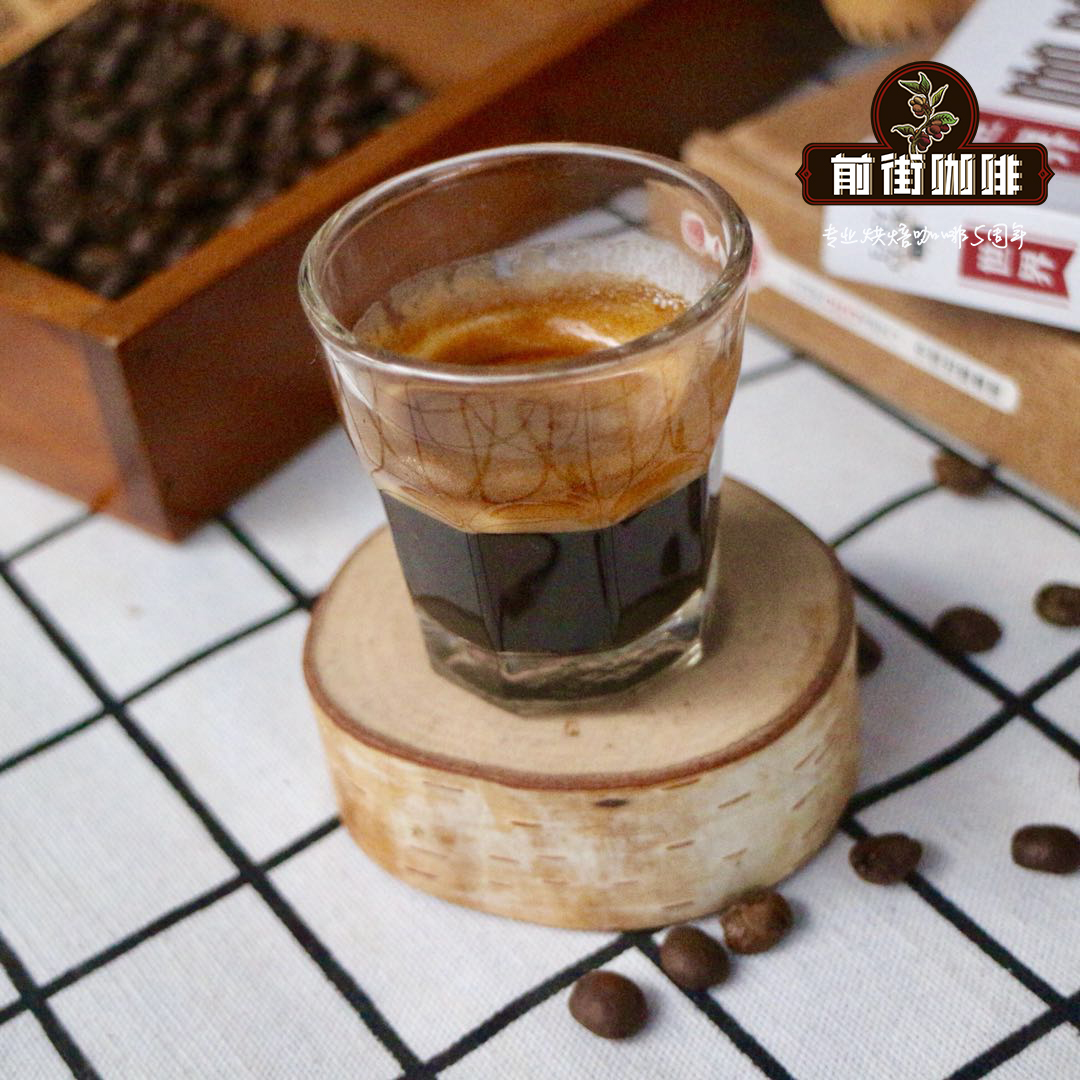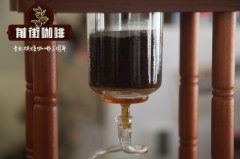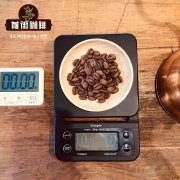How to make organic coffee the advantages of drinking organic coffee are compared with those of ordinary coffee.

Professional coffee knowledge exchange more coffee bean information please follow the coffee workshop (Wechat official account cafe_style)
Coffee beans-Organic coffee drinks attitude towards life
Foodie may not be able to tell the difference between an important vegetable and a coffee bean-like vegetable, but there is no lack of experienced coffee fans who say they can tell the good taste of organic coffee from ordinary coffee. But in an era when most organic foods are several times more expensive than their counterparts, a cup of organic coffee with a difference of only a few yuan seems much more approachable. If you pay close attention, you will find that organic coffee is given more "positive" labels, not only taste, but also attitude.
In some chain or specialty coffee shops in Guangzhou, it is increasingly easy to find organic coffee: in chain coffee shops, organic coffee is only 3 yuan more expensive than ordinary coffee; in the world of boutique coffee, organic coffee is far cheaper than famous coffee such as Blue Mountain or cat droppings; and in the hands of environmentalists, the cigar position of organic coffee is trying to make it a companion in daily life.
Spread a warm organic attitude
The storefront of the Pumen Bakery in the small corner of Jianwu Road is very small, with two tables and seven or eight seats inside, and a mini garden outside. The owner, Anges, is a wheat-skinned Guangzhou girl. The pregnant mother-to-be in a linen apron makes the shop full of organic food full of sense of security and warmth. She lived and studied wine for three years in a small town in Burgundy, France, and worked in a bread restaurant when she met her French husband. "he used to be a charity worker who helped street children whose parents were imprisoned or sentenced to death in India and Egypt. Later, he wanted to learn a craft and teach others to be self-reliant, so he became a baker." Anges and her husband, who once worked in organic farming in Shanghai, have returned to their hometown to open this organic bakery to spread the warm and organic attitude towards life.
Although they make high-quality French buns, they use domestic flour. CSA (Community supports Agriculture) advocates eating local and seasonal food. "Guangzhou does not produce wheat everywhere like France, so Beilang flour produced by organic farms in Beijing is ground immediately before picking up the goods, which is very fresh." The small shop filled with the smell of warm bread is also filled with all kinds of organic food from the local farmers' bazaar.
Agnes, who has worked in grape fields for many years, is well aware of the impact of pesticides on crops and the environment. Through the store, she hopes to use food to convey messages more effectively. Perma (which means "eternal agriculture", a concept of a perennial agricultural system modelled on ecological relationships in nature), organic and fair trade are its core ideas.
"Organic coffee is not that expensive." from Fair Stack in Hong Kong, through a simple Italian coffee maker, Agnes thinks her organic essprsso tastes good, too, for 15 yuan. The girl who studied wine believed that her tongue was more responsible for coffee.
Enjoy the boutique of coffee
Caf é 90 +, which takes organic boutique coffee as a gimmick, is opened on the construction road. Its founder is China's first internationally recognized SCAA coffee cup tester and CQI quality appraiser (Q Grader). The so-called "90 +" refers to the cup score of coffee measured by the American Fine Coffee Association (SCAA) and the Coffee quality Organization (CQI). If the score is more than 80 points, it can be called boutique coffee, while the coffee sold in this shop is more than 90 points, which can be described as the "boutique".
The decoration of this boutique coffee shop is simple, the cashier is also equipped with professional coffee magazines, and there is a row of chairs in front of the bar for guests to watch the handmade coffee making process. Glass jars of three kinds of organic coffee beans are placed in front of the bar so that guests can see the shape and appearance of the coffee beans, the degree of roasting, and open the incense.
The planting method of organic coffee pays great attention to the wind and soil environment and intensive cultivation, and it is easy to get good beans with high scores. Of the eight or nine coffee beans available in the caf é 90 + store, organic coffee beans account for four: Yega Xuefei in Ethiopia, Vivette Nango in Guatemala, Fairtrade beans in Nicaragua and Wahana in Sumatra.
When it comes to the difference in taste between organic coffee and ordinary coffee, Xiao Jie, a young barista, laughs that ordinary people may not be able to drink it. "Organic coffee doesn't have pesticides, so it tastes fresher and simpler." The taste of coffee is not only related to the environment, altitude and roasting degree of coffee beans, but also related to the way it is made. Because boutique coffee is famous for its complexity and hierarchy, boutique coffee shops are also mainly hand-brewed, which can control the water temperature and time more flexibly; if you do not want to be affected by the barista's manual factors, you can also choose a siphon pot to watch the coffee production process. As for the esprsso coffee machine in most espresso chains, it is fragrant, but it is difficult to appreciate its individual flavor.
Let's start with Yega Chuefei, which is full of fresh fruit. Hold it in a white English porcelain cup in your hand, light soup color and refreshing taste, sweet and full of flowers, if you don't tell you, maybe you will really regard it as a cup of tea. The interest of exquisite coffee also lies in the communication with the barista. After grinding the coffee beans, he will certainly give you a smell. The aroma of each kind of coffee beans after fresh grinding is remarkable and fascinating. Like Vivetna fruit from the volcano in Guatemala, the freshly ground powder smells like the soil that has just rained, and perhaps the mineral aroma of volcanic beans, with a hint of sour chocolate and scorch, and a long finish. The full-bodied and well-balanced taste is diametrically opposed to that of Yega Chuefei.
"maybe grapes and coffee beans are the most authentic crop carriers in the world," sighs Xiao Jie, the barista, who seems to show the importance of organic crops in the herbal and earthy taste fascinated by coffee drinkers. The cost of organic boutique coffee is much lower than that of Kopi Luwak and Blue Mountain Coffee. The price of high-quality organic coffee beans is only about 1x3 higher than that of ordinary coffee beans.
Add 3 yuan to drink organic.
Organic Fairtrade coffee is also available in Guangzhou (some stores in Foshan and Suzhou are not yet on sale). As long as you add 3 yuan to buy coffee, you can specify that organic beans can be used to make any espresso-based coffee you like, such as latte, cappuccino, mocha, or even its le ice.
Pacific Coffee began selling organic Fairtrade beans certified by the United States Department of Agriculture two years ago. Today, Camasuna Organic espresso is made from a mixture of Costa Rican, Colombian and New Guinea beans. The nutty aroma shows a charming floral aroma, showing a smooth, mellow and rich taste. Two other organic coffee beans come from Sumatra and Colombia, the former has low acidity and cocoa tone, permeates spicy and fresh aromas of trees, while the latter has moderate acidity, full of dried honey and sugarcane syrup flavor.
Explanation of Organic Coffee terms
If you pay close attention, you will find that environmentalists try to express more voices in the world language of coffee, express their attitudes in terms of taste, and use common labels such as organic coffee and Fairtrade.
Organic coffee Organic: coffee that does not use synthetic pesticides, herbicides or chemical fertilizers during its growth, uses natural composting and pest control methods, and natural agricultural techniques such as planting protective trees to maintain a healthy environment and keep the groundwater pure. In addition to organic cultivation, coffee beans are processed in organically certified roasting plants and certified by third parties (except coffee producers and buyers). Common major organic coffee certification bodies such as Rainforest Alliance Certification (Rainforest Alliance Certified), USDA Organic Certification (USDA) and good Coffee (UTZ).
Fair Trade Fairtrade: "Fair Trade" believes that free trade advertised by globalization is unfair and will bring damage to the natural environment and the decline of vulnerable ethnic groups, advocates the reform of existing trade practices, and encourages consumers not to participate in consumption involving unfair trade, so as to reduce producers and consumers from being exploited by middlemen. Some products with fair trade labels on the market try to call for justice with a slightly higher "fair price" and restore the original value of high-quality products, of which Fair Coffee and Chocolate are the most famous.
Important Notice :
前街咖啡 FrontStreet Coffee has moved to new addredd:
FrontStreet Coffee Address: 315,Donghua East Road,GuangZhou
Tel:020 38364473
- Prev

How to grow Organic Coffee? what are the characteristics of organic coffee?
Professional coffee knowledge exchange more coffee bean information Please pay attention to coffee workshop (Wechat official account cafe_style) with the aggravation of environmental pollution and people's health concern, organic food is becoming more and more popular, and coffee is no exception. In addition to the taste, drinking organic coffee is not only a responsibility for health and the environment, but also an organic attitude towards life. Organic Coffee production Organic
- Next

It is better to choose sour coffee beans or bitter coffee beans.
Professional coffee knowledge exchange more coffee bean information Please follow the coffee workshop (Wechat official account cafe_style) before officially brewing Philharmonic pressed coffee beans, make sure that these items in the photo are ready. The bamboo mixing rod is the KONO bought before, basically not the original accessory XD, basically, my recent brewing habits will be burning.
Related
- Beginners will see the "Coffee pull flower" guide!
- What is the difference between ice blog purified milk and ordinary milk coffee?
- Why is the Philippines the largest producer of crops in Liberia?
- For coffee extraction, should the fine powder be retained?
- How does extracted espresso fill pressed powder? How much strength does it take to press the powder?
- How to make jasmine cold extract coffee? Is the jasmine + latte good?
- Will this little toy really make the coffee taste better? How does Lily Drip affect coffee extraction?
- Will the action of slapping the filter cup also affect coffee extraction?
- What's the difference between powder-to-water ratio and powder-to-liquid ratio?
- What is the Ethiopian local species? What does it have to do with Heirloom native species?

